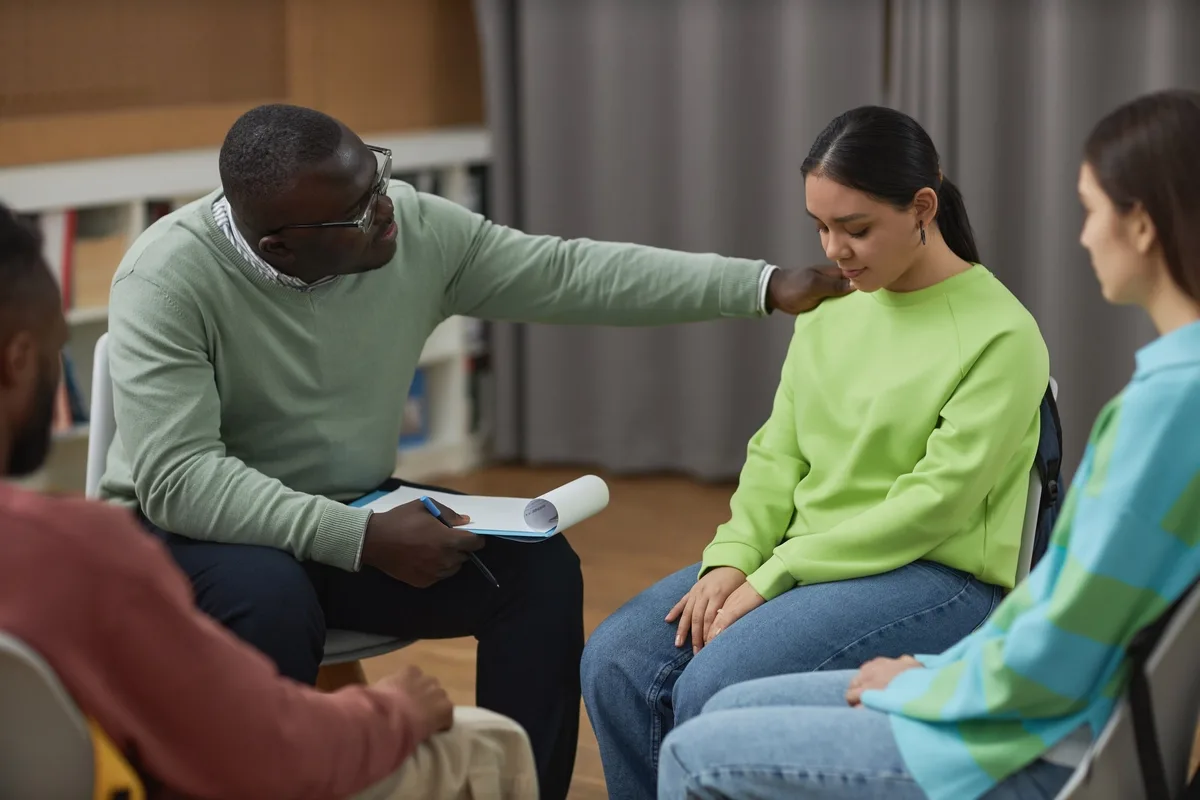24/7 Helpline:
(866) 899-111424/7 Helpline:
(866) 899-1114
Learn more about PTSD Rehab centers in Troutdale
PTSD Rehab in Other Cities

Other Insurance Options

American Behavioral

WellPoint

Multiplan

Molina Healthcare

United Health Care

Medical Mutual of Ohio

Covered California

Health Net

Health Choice

MVP Healthcare

Cigna

Aetna

Sutter

Absolute Total Care

Evernorth

PHCS Network

Self-pay options

MHNNet Behavioral Health

Horizon Healthcare Service

UMR

Addictions and Family Counseling
Addictions and Family Counseling is a private counseling clinic located in Troutdale, OR. Addictions...






















